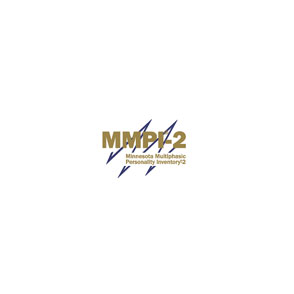The Minnesota Multiphasic Personality Inventory-2 (MMPI-2) remains the most widely used and widely researched assessment of adult psychopathology. Used by clinicians to assist with the diagnosis of mental disorders and the selection of appropriate treatment methods, the MMPI-2 continues to help meet the assessment needs of mental health professionals in an ever-changing environment.
ASSESSMENT SCALES
The MMPI-2 includes the following scales (not all the scales are included in every report):
Clinical Scales: Provide the clinician with information on possible psychological/mental health problems. Restructured Clinical Scales: These scales preserve the valuable descriptive features of the existing MMPI-2 Clinical Scales and enhance their distinctiveness.
Clinical Subscales: The Harris-Lingoes Subscales and Social Introversion Subscales sort under the Clinical Subscales. These scales contribute to the clinical descriptions of the basic scales providing a specific underlying theme.
Content Scales: These scales provide contents and contexts of the self-report responses of the individual.
Content Component Scales: With the Content Component Scales, the subscales of the Content Scales are taken into consideration to provide a refinement of them.
Supplementary Scales: focus on adding to the interpretation of the validity and clinical scales.
The Validity Indicators and Superlative Self-Presentation Subscales: These indicate the validity of the profile, and include the Fake Bad Scale (FBS). The FBS has recently been included in the Extended Score Report and hand-scoring materials. It has been found particularly useful in neuropsychological assessments.
AREAS OF APPLICATION
The MMPI-2 can be used for the following purposes:
Assess major symptoms of social and personal maladjustment.
Identify appropriate treatment strategies and potential difficulties with treatment early in the assessment process.
Identify suitable candidates for high-risk public safety positions.
Support classification, treatment and management decisions in criminal justice and correctional settings.
Give a strong empirical foundation for a clinician’s expert testimony.
Assess medical patients and design effective treatment strategies, including chronic pain management.
Evaluate participants in substance abuse programmes and select appropriate treatment approaches.
Provide valuable insight for marriage and family counselling.
REPORT OPTIONS
The MMPI-2 software helps to evaluate individuals in a variety of settings, such as mental health facilities, organisations (for evaluations of personality attributes that may contribute to unsafe, irresponsible or ineffective on-the-job behaviour),and the correctional and forensic environment. Not all the reports provide the same, or all, scores.
The MMPI-2 has the following software reports available:
Extended Score Report: includes the following MMPI-2 scales: Validity and Clinical Scales –profiled; Non-K-corrected Validity and Clinical Scales -profiled (optional); Clinical Subscales (Harris-Lingoes and Social Introversion subscales) -scale scores reported only; Restructured Clinical (RC) Scales –profiled; Content Scales –profiled; Content Component Scales -scale scores reported only; Supplementary Scales (includethe PSY-5 Scales) –profiled. Critical items and omitted items are also provided.
The Minnesota Report: Adult Clinical System, 4thEdition Interpretive Report:provides a comprehensive psychological picture of a client. This report presents the following MMPI-2 scales: Validity and Clinical Scales profiled and interpreted; Content Scales profiled and interpreted; Supplementary Scales profiled with alcohol/drug scales interpreted; PSY-5 Scales profiled and interpreted; Superlative Self-Presentation Scale reported only; Clinical Subscales (Harris-Lingoes and Social Introversion Subscales) reported only; Content Component Scales reported only. Lists of critical items and omitted items are also provided. In addition, the report provides an objective narrative assessment of theclient's responses,and compares the profile datato data from setting-specific research samples. The settings that are considered in the interpretation are:
Outpatient Mental Health
Inpatient Mental Health
General Medical
Chronic Pain
Correctional
College Counselling
Alcohol & Drug Treatment
The Minnesota Report: Revised Personnel System, 3rd Edition Interpretive Report: helps the professional to gain a clearer picture of critical hiring decisions. This report presents the following MMPI-2 scales: Validity and Clinical Scales profiled and interpreted; Content Scalesprofiled and interpreted; Supplementary Scales profiled with alcohol/drug scales interpreted; PSY-5 Scales profiled and interpreted; Superlative Self-Presentation Scale reported only; Clinical Subscales (Harris-Lingoes and Social Introversion Subscales) reported only; Content Component Scales reported only.
In addition, the report compares the profile data to data from occupation-specific research samples,and provides occupation-specific mean profiles. The occupations that are considered in the interpretation are:Nuclear Power Facility
Law Enforcement
Airline Pilots
Medical and Psychology Students
Firefighters/Paramedics
Seminary Students
Other
The Minnesota Report - Revised Personnel System, 3rd Edition Adjustment Rating Report: presents the following MMPI-2 scales: Validity and Clinical Scales profiled and interpreted; Content Scales profiled and interpreted; Supplementary Scales profiled with alcohol/drug scales interpreted; PSY-5 Scales profiled and interpreted; Superlative Self-PresentationScale reported only; Clinical Subscales (Harris-Lingoes and Social Introversion Subscales) reported only; Content Component Scales reported only.
In addition, the report rates the applicant on five important work-related dimensions:Openness to Evaluation
SocialFacility
Addiction Potential
Stress Tolerance
Overall Adjustment.
Content themes and specific Work Dysfunction items are also reported.
The Minnesota Report: Reports for Forensic Settings: Each report in this series presents the following MMPI-2 scales: Validity and Clinical Scales profiled and interpreted; Content Scales profiled and interpreted; Supplementary Scales profiled with alcohol/drug scales interpreted; PSY-5 Scales profiled and interpreted; Superlative Self-Presentation Scale reported only; Clinical Subscales (Harris-Lingoes and Social Introversion Subscales) reported only; Content Component Scales reported only. Lists of omitted items and Gass Head Injury items (Personal Injury Neurological setting only) are also provided.
In addition, this report series is customised for six forensic settings. Each of the reports provides an objective narrative assessment of theclient's responses,and compares the profile data to data from setting-specific research samples. The settings are:Child Custody
Personal Injury
Personal Injury (Neurological)
Pre-trial Criminal
General Corrections
Competency/Commitment
SOUTH AFRICAN RESEARCH
JVR Psychometrics welcomes the opportunity to partner with clients in conducting research.
Product Info
Training
Optional
Age range
Individuals 18 years and older
Administration time
Not specified
Norms
Global
Languages
English, Spanish, French for Canada, Hmong
Administration Platform
Data capturing by Client Services/Hand-scoring
Integrated reports
Available
Author
James N Butcher, John R Graham, Yossef S Ben-Porath, Auke Tellegen, W. Grant Dahlstrom and Beverly Kaemmer
Publisher
Pearson Education Ltd 2017.
Useful links
Questions about Minnesota Multiphasic Personality Inventory® - 2 (MMPI® - 2)?
Ask an expert
Fill in the form and one of our product experts will be in touch with you.


